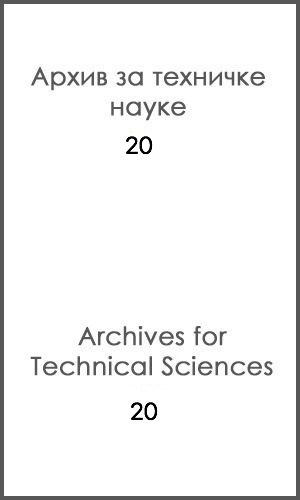RES CAPACITY INCREASE IN EU AND WIND PROJECT SUSTAINABILITY WITH CASE STUDY ON SERBIA AND MONTENEGRO MARKET
DOI:
https://doi.org/10.7251/afts.2019.1120.001SAbstract
More than 60 years ago, six countries (Belgium, France, Germany, Italy, Luxembourg and the Netherlands) have established a Coal and Steel Community and have reached an agreement that with creating a unified market for coal and steel, they will attain common prosperity, by developing national and economic interests of these countries. Today, the European policy makers are faced with the same challenge: create true European Energy Union in the era of climate change. European energy system based on fossil fuels is needed to complete the overhaul of the entire energy system. The EU has already developed a number of tools for deeper coordination of energy policies throughout the Member States.
Surely Europe can create a great momentum aimed at the increase in the number of jobs by accelerating the transformation of the energy sector with targeted and coordinated investments. Since the production of energy from fossil fuels is one of the main sources of emissions of greenhouse gases, renewable energy sources will play an increasingly important role in the production of electricity and heat with little or no CO2 emissions.
This summary shows the expansion of the wind power industry in the last decade and draws a parallel between sustainable development and economic indicators in Europe and the market trends and the development of wind projects in the Republics of Serbia and Montenegro. This summary also provides an overview of the installed capacity of renewable energy with the focus on wind. At the same time the increase in consumption indicates production growth and the directions of further development defined by the EU Commission.

